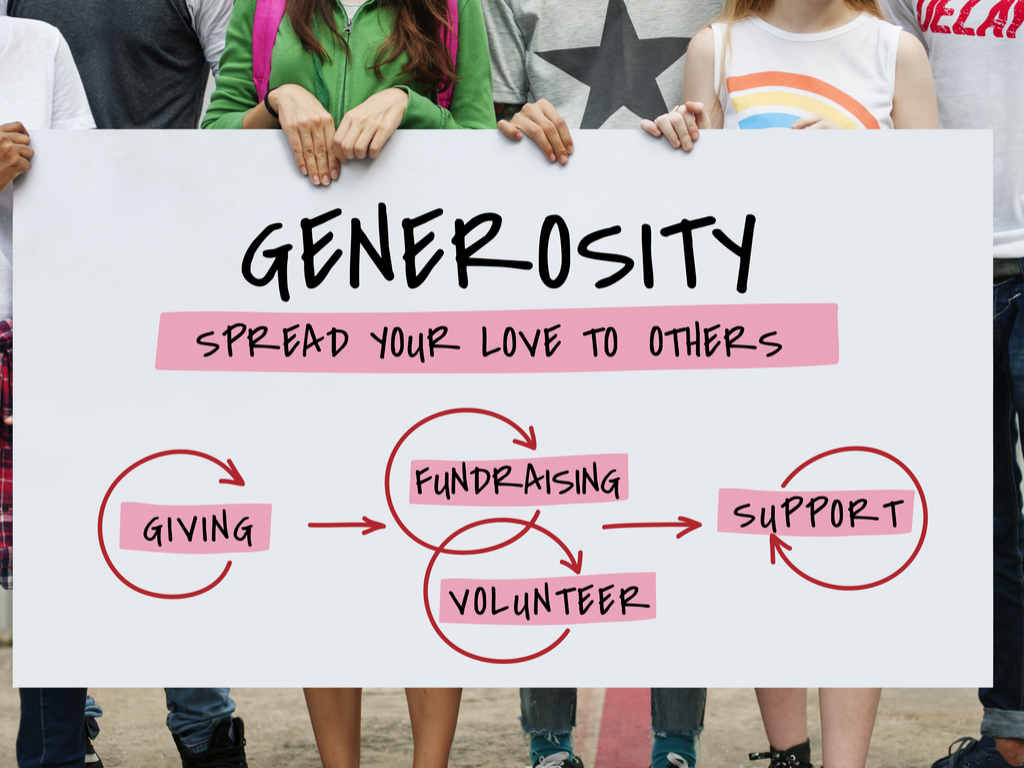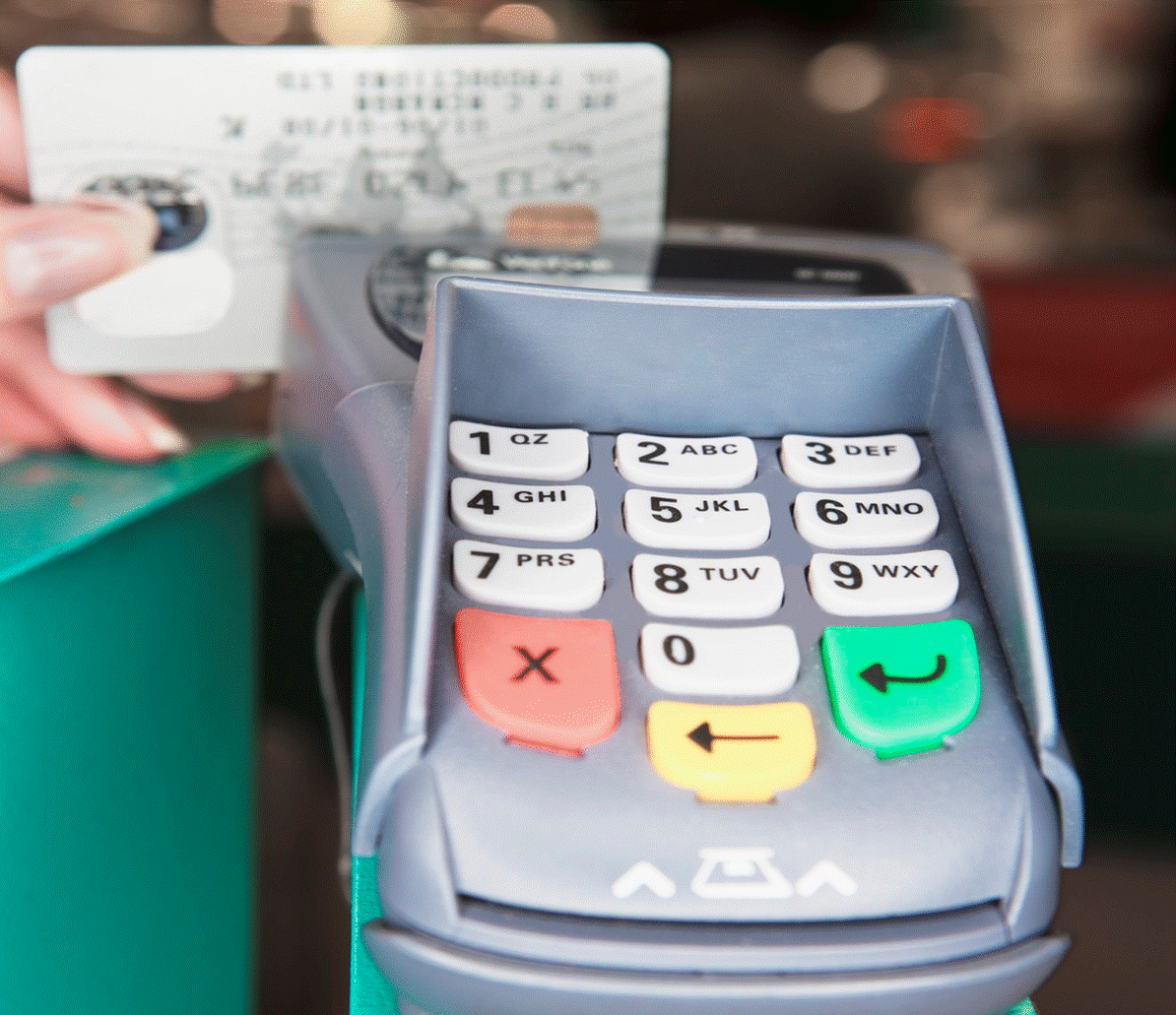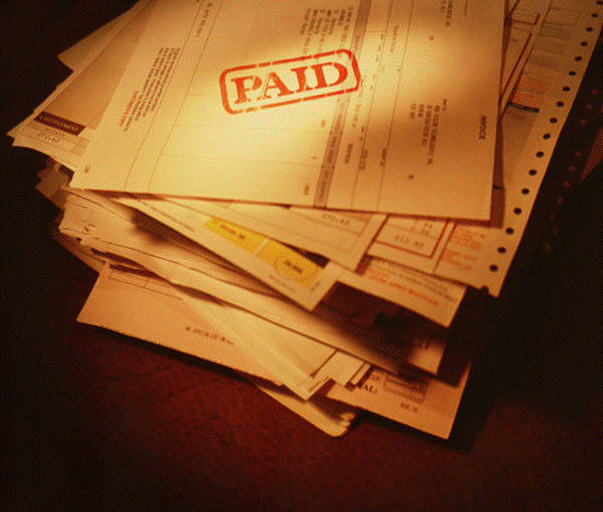
Generosity should be a component of building and applying our knowledge of financial literacy to our own lives. Why is generosity such an important component of financial literacy? Because it takes the focus off of our own selfish desires for our lives. It provides us with a greater purpose for our money that far exceeds our own selfish desires.
“We make a living by what we get, we make a life by what we give” Duane Hulse
We all need to be reminded that our lives will not be remembered for how much we earned or how hard we worked. Our lives will be remembered for how we touched and impacted the lives of others.
“All of us are born for a reason, but all of us don’t discover why. Success in life has nothing to do with what you gain in life or accomplish for yourself. It’s what you do for others.” Danny Thomas
Therefore, each of us should look for more meaningful ways to use our money, time and talents to impact others less fortunate than ourselves.
We don’t have to wait to become millionaires to start practicing the concept of generosity. We can start today. There is always someone less fortunate than us and we can impact their lives today.
Maybe each of us should be asking ourselves this question:
What do I have that can make a difference in someone elses life? It is the gift of my time & resources to help others less fortunate than myself.
Here are some questions that may help you get started:
- Where can I make a difference?
- Who or what is on my heart?
- How can I use my unique gifts and abilities to touch and impact the lives of others less fortunate?
- Where can I and or my family get involved?
- Where is an unmet need in my community or in the world that I feel passionate about getting involved in?
- What random acts of kindness can I anonymously perform today?
“You have not lived a perfect day, even though you have earned your money, unless you have done something for someone else who will never be able to repay you” Ruth Smeltzer
Ralph Waldo Emerson said “It is one of the most beautiful compensations of this life that no man can sincerely try to help another without helping himself”
I hope this short aricle inspires you to find your purpose and passion in life for helping others. This new found purpose for you and your money may be the first step towards getting freed up financially. It may provide the motivation to reduce your expenses, become debt free, set a cap on your lifestyle and use your resources to make a lasting difference in your community and our world.
I hope you have benefited from this post on Financial Literacy. If so, leave a comment. In addition, please forward this to anyone you think might benefit from this short lesson on the Concept of Generosity.
I hope you will follow Fiscal Literacy on Twitter, Facebook or subscribe via email to receive personal finance, news and updates.
Copyright © 2011 FiscalLiteracy.com, All Rights Reserved


 Self storage units have gotten a lot of attention lately with A&E’s real-life show, Storage Wars. It showcases some individuals who attend auctions to bid on repossessed self storage units. The show provides a look into what Americans keep in their storage units. The show also provides the estimated value of the items that are purchased by the winning bidder. Many times the estimated market value of the items is very low.
Self storage units have gotten a lot of attention lately with A&E’s real-life show, Storage Wars. It showcases some individuals who attend auctions to bid on repossessed self storage units. The show provides a look into what Americans keep in their storage units. The show also provides the estimated value of the items that are purchased by the winning bidder. Many times the estimated market value of the items is very low. Do you remember when cashiers would ask “cash or credit?” Those days are long gone. Consumers have traded cash for convenience. Unfortunately, convenience comes at a price. It is consumer debt. It is very difficult to control our spending when we merely swipe our credit card for any and every purchase without ever stopping to realize the impact that each charge has on our overall personal finances.
Do you remember when cashiers would ask “cash or credit?” Those days are long gone. Consumers have traded cash for convenience. Unfortunately, convenience comes at a price. It is consumer debt. It is very difficult to control our spending when we merely swipe our credit card for any and every purchase without ever stopping to realize the impact that each charge has on our overall personal finances. Summer provides the perfect opportunity to help our teens learn some valuable lessons managing their money. Many teens get part-time summer jobs, mow lawns or get weekly allowances for doing chores around the house and they have a myriad of summer activities vying for their attention.
Summer provides the perfect opportunity to help our teens learn some valuable lessons managing their money. Many teens get part-time summer jobs, mow lawns or get weekly allowances for doing chores around the house and they have a myriad of summer activities vying for their attention. Debt is consuming the lives of millions of people. Debt is what keeps us from pursuing our hopes, goals and dreams for our lives. Debt robs us of our future. The only way we can take control of our financial lives and our future is by becoming debt free and never going back into debt. Debt free living must become your passion and your unrelenting goal. Debt free living can be a reality for anyone that is willing to commit to the goal. What if you were debt free? How would it change your life? What could you do or pursue if you were debt free? Here are 3 Steps to help you become debt free.
Debt is consuming the lives of millions of people. Debt is what keeps us from pursuing our hopes, goals and dreams for our lives. Debt robs us of our future. The only way we can take control of our financial lives and our future is by becoming debt free and never going back into debt. Debt free living must become your passion and your unrelenting goal. Debt free living can be a reality for anyone that is willing to commit to the goal. What if you were debt free? How would it change your life? What could you do or pursue if you were debt free? Here are 3 Steps to help you become debt free. Summer vacations provide the perfect opportunity to escape from the busyness of life, unplug, relax and enjoy life. This has never been truer than over the last few years. The financial crisis has created a substantial amount of financial stresses and strains that have taken their toll on people, marriages and families. Therefore, a summer
Summer vacations provide the perfect opportunity to escape from the busyness of life, unplug, relax and enjoy life. This has never been truer than over the last few years. The financial crisis has created a substantial amount of financial stresses and strains that have taken their toll on people, marriages and families. Therefore, a summer Life is too short to save every penny we earn hoping we will need it for a rainy day. We work too hard not to reward ourselves daily with the some of the nicer things in life. After all, it is our hard work that allows us to raise our standard of living, purchase the new car we have always dreamed of owning and take that incredible vacation.
Life is too short to save every penny we earn hoping we will need it for a rainy day. We work too hard not to reward ourselves daily with the some of the nicer things in life. After all, it is our hard work that allows us to raise our standard of living, purchase the new car we have always dreamed of owning and take that incredible vacation. Millions of American carry credit card balances every month because they are unable to pay off the balances in full. The latest G-19 report from the Federal Reserve for March, 2011 reported that consumers owed approximately 796 billion on revolving credit card debt. This is a great deal if you are the banks and credit card companies who collect the millions of dollars in interest every month. However, for the millions of families making these payments it is consuming their lives and their personal finances.
Millions of American carry credit card balances every month because they are unable to pay off the balances in full. The latest G-19 report from the Federal Reserve for March, 2011 reported that consumers owed approximately 796 billion on revolving credit card debt. This is a great deal if you are the banks and credit card companies who collect the millions of dollars in interest every month. However, for the millions of families making these payments it is consuming their lives and their personal finances. One of the biggest challenges for home buyers today is the increased down payment requirements of many mortgage loan programs. The larger down payment requirements combined with closings costs and the prepaid expenses to establish an escrow account for property taxes and home owners insurance can prohibit many families from purchasing a home.
One of the biggest challenges for home buyers today is the increased down payment requirements of many mortgage loan programs. The larger down payment requirements combined with closings costs and the prepaid expenses to establish an escrow account for property taxes and home owners insurance can prohibit many families from purchasing a home. How many of us could stand to lose a few pounds and also payoff some debts? Everyone is searching for the latest and greatest fad to get ripped and or get rich. Everyone wants to know what is the secret? The secret lies within each of us. We are the secret to getting ripped or getting rich. It all starts with us.
How many of us could stand to lose a few pounds and also payoff some debts? Everyone is searching for the latest and greatest fad to get ripped and or get rich. Everyone wants to know what is the secret? The secret lies within each of us. We are the secret to getting ripped or getting rich. It all starts with us.

